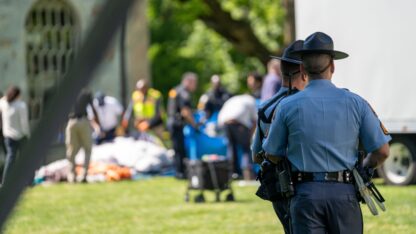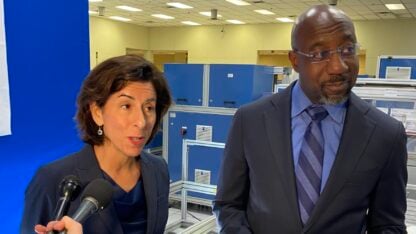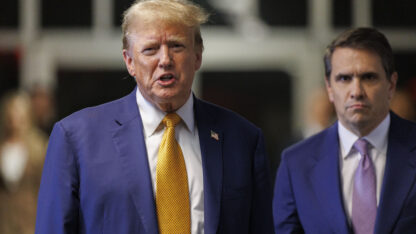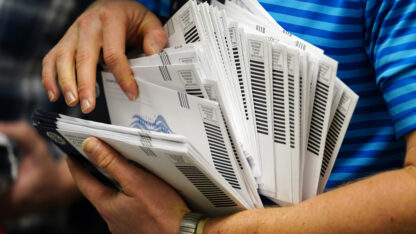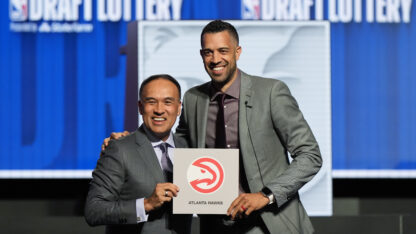Teens See COVID-19 Vaccine As A Path Back To Pre-Pandemic Life

Tori Hood, an emergency room nurse at Children’s Healthcare of Atlanta, gives 15-year-old Tristan Linscott her first COVID-19 vaccine dose at a pop-up vaccination clinic at the Georgia International Convention Center in College Park.
Sam Whitehead / WABE
It’s Thursday morning in a cavernous ballroom at the Georgia International Convention Center in College Park.
Tori Hood, an emergency room nurse with Children’s Healthcare of Atlanta, is here at this pop-up clinic vaccinating some of the first kids in the state newly eligible for Pfizer’s two-dose COVID-19 regimen.
Federal regulators authorized the vaccine for children from 12-15 years of age earlier this week.
“Alright, Emma,” Hood calls out to a group of triplets all waiting to get their first shots. “Are you fine with your left arm as well, hon?”
“Yes, I am,” 15-year-old Emma Linscott says as she takes a seat and rolls up her sleeve. She’s the second of her siblings to get the jab.
The whole vaccination process takes only a few moments and is “not at all bad” Linscott tells Hood as she gets handed her vaccination card.
“I feel really good,” Linscott said. “I’m really excited because many of my friends have strict rules about [the pandemic], so I’m glad to be able to hang with them after I get vaccinated.”
The chance to get a shot is also a big deal to Emma’s siblings.
“I’m excited, because I want to go back to school with all my friends,” John Linscott said. “I have a lot easier time learning that way, and this makes it a lot easier.”
“I’m also excited, because I’m a camp counselor this summer,” said Tristan Linscott. “To get vaccinated, that’s helpful to kids at the camp to keep them safe.”
The three say many of their friends got their shots after federal regulators approved them for people as young as 16. They’re finally glad to be able to join them. They’re also happy to be less of a risk to their grandmother, who lives with the family in Atlanta.
More shots in arms won’t just help kids get important parts of their lives back, says Dr. Jim Fortenberry, the chief medical officer at Children’s.
Though it’s less common than with adults, COVID-19 can make kids very sick, and they can spread the coronavirus to others.
“We also know that by vaccinating our teens that we’re helping decrease the prevalence of COVID-19 in the community, and that helps all of us,” Fortenberry said.
Across the state, other providers like public health departments and retail pharmacies are joining in the effort to get more shots into kids’ arms, with yet another incentive for them to get inoculated.
The Centers for Disease Control and Prevention now says fully vaccinated people no longer need to wear masks or physically distance in most outdoor — and indoor — settings.


